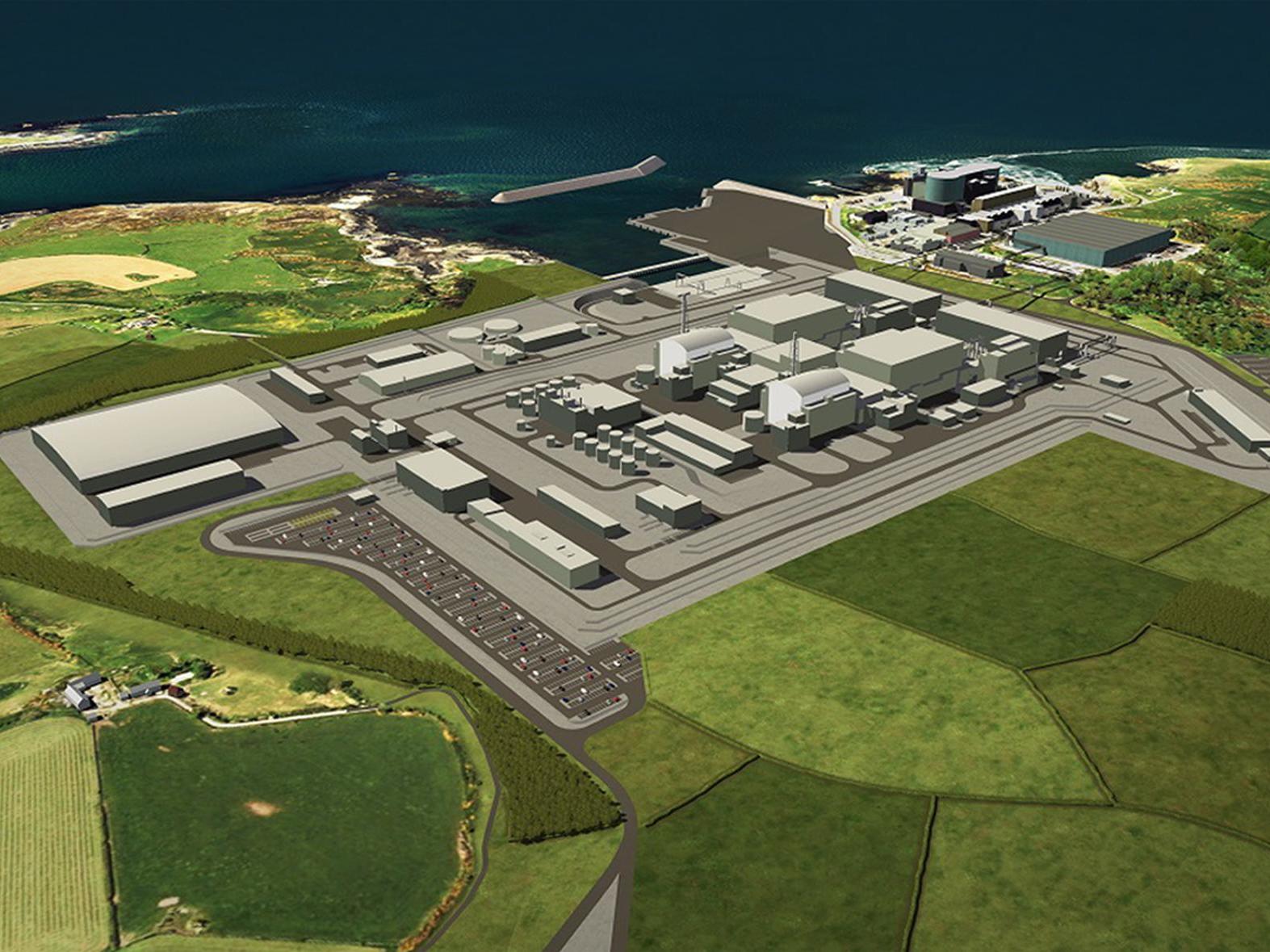Hitachi scraps Welsh power plant plans with 400 jobs lost
'The economics of the energy market have changed significantly in recent years,' business secretary Greg Clark says

The government has been forced to defend its strategy of reliance on nuclear power after the plummetting cost of renewable energy prompted a Japanese company to pull out of a new plant in Wales that had been slated to provide thousands of jobs.
Hitachi took a £2bn hit to end its involvement in the Wylfa project in Anglesey, north Wales, with 400 jobs lost. At The project was expected to support to around 9,000 jobs when construction activity reached its peak.
“The economics of the energy market have changed significantly in recent years,” business secretary Greg Clark told the House of Commons on Thursday.
Renewable technologies will soon require no government subsidies, Mr Clark said, adding that “renewable energy may now not just be cheap, but also readily available”.
Because of this, and despite “significant and generous” offers of financial support from the government, Hitachi believed the £16bn Wylfa Newydd nuclear project was no longer viable, Mr Clark conceded.
Instead of nuclear, “investors now favour other technologies that are less capital-intensive upfront, quicker to build, and less exposed to cost overruns”, the business secretary said in a statement that will provide a major boost for the UK’s renewable energy industry.
However he maintained that nuclear still had a role to play in the UK and defended the heavily criticised Hinkley Point C nuclear power plant under construction in Somerset.
Hinkley is currently eight years behind schedule and will cost billions more than initially planned. When it does come online in 2025 it will lock the country into paying £92.50 per megawatt hour compared to £57.50 for offshore wind.
While renewable costs continue to drop sharply, those for new nuclear power generation have soared, partly as a result of tighter safety rules brought in after the Fukushima disaster in 2011.
Those shifting economics prompted Hitachi to suspend work at Wylfa Newydd, resulting in up to 400 job losses. Hitachi said it had made “strong progress” on the project, but had not been able to agree on financing.
The company’s board decided on Thursday that, despite having spent around £2bn on the project, it would be prudent to cut its losses.
The UK government had offered to take a one-third equity stake and guarantee a strike price of £75 per megawatt. The fact that, even at a price significantly higher than offshore, Wylfa Newydd was considered too risky will call into question the future of nuclear as an energy source.
A second Hitachi plant which had been proposed in Oldbury, Gloucestershire, will also not be built.
Hitachi’s decision is a blow to the government’s hopes to attract foreign investment to the UK after Brexit and comes just days after a visit to the UK by Japanese Prime Minister Shinzo Abe.
The news also puts the spotlight once again on the government’s energy policy and calls into question the future of nuclear as an energy source. In November Toshiba pulled out of the Moorside plant in Cumbria after spiralling costs on US nuclear projects caused the collapse of its Westinghouse subsidiary.
Together, the Oldbury, Anglesey and Moorside plants were expected to produce 15 per cent of the UK’s electricity needs. Now, ministers will have to come up with new plans to make up the shortfall and ensure uninterrupted power supplies.
Environmental groups said the government should boost renewable energy investment rather than focusing on nuclear.
“A clever move now would be for the government to accept that the nuclear bet didn’t pay off, stop holding back renewables and have an urgent rethink about the future of UK energy,” Dr Doug Parr, chief scientist for Greenpeace UK said.
Duncan Hawthorne, chief executive of Hitachi’s UK subsidiary, Horizon Nuclear Power, said: “I am very sorry to say that despite the best efforts of everyone involved we’ve not been able to reach an agreement to the satisfaction of all concerned.
“As a result we will be suspending the development of the Wylfa Newydd project, as well as work related to Oldbury, until a solution can be found.
“In the meantime we will take steps to reduce our presence but keep the option to resume development in future.”
A business department spokesperson said: “As the Business Secretary set out in June, any deal needs to represent value for money and be the right one for UK consumers and taxpayers.
“Despite extensive negotiations and hard work by all sides, the Government and Hitachi are unable to reach agreement to proceed at this stage.”
Subscribe to Independent Premium to bookmark this article
Want to bookmark your favourite articles and stories to read or reference later? Start your Independent Premium subscription today.

Join our commenting forum
Join thought-provoking conversations, follow other Independent readers and see their replies